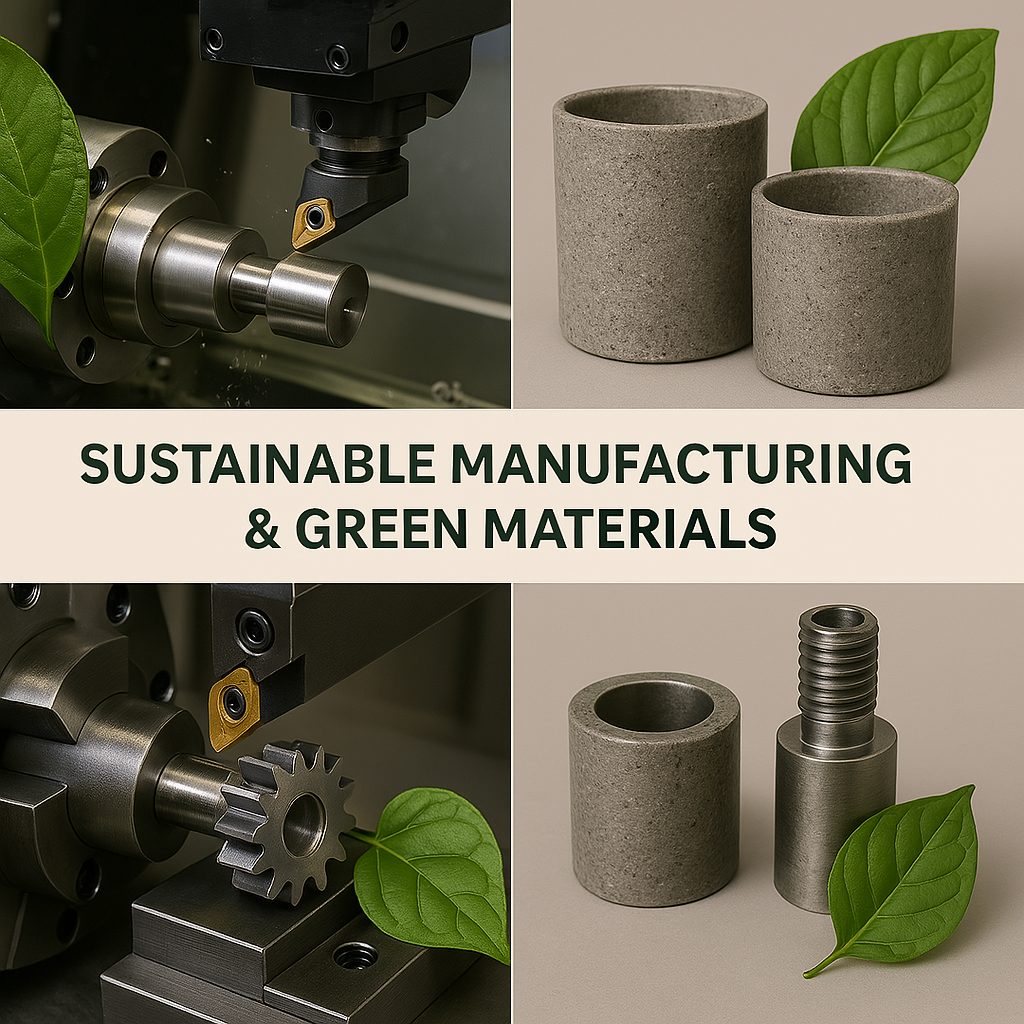In recent years, more and more industries are realizing that making products isn’t just about speed and accuracy anymore. It’s also about protecting the environment and using resources wisely.
This idea is called green manufacturing, and it’s becoming very important in the world of precision machining.
What is Green Manufacturing?
Green manufacturing means producing goods while trying to:
Reduce waste
Use less energy
Lower pollution
Save natural resources
It’s about making high-quality products in a way that’s better for both people and the planet.
Why It Matters in Precision Machining
Precision machining often involves cutting metals, using coolants, running powerful machines, and creating scrap material. All of this can have a big impact on the environment. That’s why companies are now looking for ways to make their machining processes cleaner and more sustainable.
How Precision Machining Can Go Green
Here are some ways precision machining is becoming more environmentally friendly:
1. Recycling Materials
Leftover metal chips and scrap pieces can be collected and recycled.
Using recycled metals reduces the need for mining and raw material processing, which saves energy.
2. Using Sustainable Materials
Companies are starting to use materials that are easier to recycle or that have a lower environmental footprint.
Some industries are experimenting with biodegradable plastics or composite materials that are strong but eco-friendly.
3. Energy-Efficient Machines
Newer CNC machines are designed to use less electricity.
Smart systems can automatically turn off machines when they’re not in use, reducing wasted energy.
4. Cleaner Coolants and Lubricants
Traditional coolants can be harmful if not handled properly.
Today, many shops are switching to vegetable-based coolants or even dry machining (machining without coolant), which produces less waste and pollution.
5. Reducing Waste Through Better Design
By planning the machining process carefully, companies can minimize the amount of material they need to cut away.
This reduces both material costs and waste.
The Role of Sustainable Materials
Using sustainable materials doesn’t just help the environment — it can also improve the product itself. For example:
Lightweight materials like titanium or certain composites can make airplanes and cars more fuel-efficient.
Corrosion-resistant materials reduce the need for replacement parts, which saves resources in the long run.
Biocompatible materials are better for medical implants, improving patient safety while also being eco-friendly.
Benefits of Green Manufacturing in Precision Machining
Cost Savings: Less waste means lower material and disposal costs.
Cleaner Workplaces: Safer, healthier environments for workers.
Stronger Brand Image: Companies that care about sustainability attract more customers.
Regulatory Compliance: Meeting stricter environmental laws and standards.
Summary
Precision machining has always focused on accuracy and efficiency. Now, it’s also focusing on sustainability.
By using green manufacturing practices and sustainable materials, the industry can continue to produce high-quality parts while also helping to protect our planet. In the long run, going green is not just good for the environment — it’s good for business too.
Please get more information, please visit our CNC Turning Parts or Products.
Contact us for your customized metal parts.
